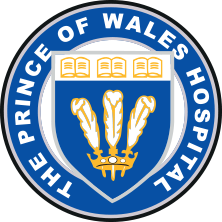Stroke and TIA Prevention Clinic
How we can help you
We treat and care for people who are at risk of or have had a stroke or Transient Ischaemic Attack (TIA).
A Stroke is a serious medical emergency that occurs when there is a decrease in the blood supply to your brain and seriously affects its function. Urgent medical attention is required to prevent permanent damage or possibly death.
A TIA is when the blood supply to your brain is only temporarily blocked. The signs are the same as a stroke but only last for a few minutes. A TIA is a warning sign that you may have a stroke.
We investigate your risks or causes for a stroke or TIA and make sure that these are managed.
You will see Professor Kenneth Butcher, our medical specialist, or a specialist doctor in training. Our doctors will assess, treat and help you manage your risk of stroke or.TIA.
Our specialist nurse can provide education on preventing stroke.
Our administration staff will help you make appointments and provide information about what happens at the clinic.
We work in partnership with your local GP, Prince of Wales Hospital and Community Health Services, local pharmacies, and researchers from the University of NSW.
Our clinics are held on Wednesday afternoons from 1.00 pm to 5.00 pm, excluding public holidays.
You can be referred from our Emergency Department, our specialist stroke unit, from your GP or another specialist doctor to use our services. They need to send a referral to Prof Butcher explaining your medical history, relevant test results and what medicines you are taking.
Once we have your referral we will send you your appointment letter in the post. If you provide your phone number you will receive a phone call 2 days before your appointment.
If you need to change or cancel your appointment please telephone the clinic on 9382 2414.
If you are admitted to our specialty stroke unit, you will be given one of these on leaving to wear for 4 weeks.
The HeartBug will monitor your heart rhythm. You will be sent a message when this has been activated so that you can record your symptoms on your mobile phone. We will show you how to use this, but for more information please watch this video.
This can then be returned to us when you come for your appointment in the Stroke and TIA Prevention or Stroke Follow Up clinic.
If you are worried that you, or your family/friend is having a stroke or TIA, dial 000 immediately and ask for an ambulance.
You can find the signs and symptoms for stroke or TIA in this Stroke Foundation information.
If you have other concerns, start by making an appointment with your GP to discuss your health. If your GP needs some advice they can telephone the specialist doctor at the clinic.
Your GP is your primary health care provider and it is important that you continue to visit them. Our specialist doctor will send a letter to your GP after your clinic appointment.
Stroke Unit (Acute)
We have a dedicated ward in our hospital for stroke or TIA patients.
Stroke Follow Up Clinic
If you have had a stroke and been cared for in our Acute Stroke Unit or Rehabilitation ward, you might visit our Follow Up Clinic once you have left hospital. This is run by a specialist nurse and they will check in on your recovery. If you are required to attend this clinic, we will contact you to make an appointment. It is run at the same location and time as the Stroke and TIA Prevention Clinic.
Please let us know if you need an interpreter. You can contact us telephoning the Translating and Interpreting Service (TIS) on 131 450. Tell the operator what language you speak and then ask the interpreter to set up a telephone conversation between you, an interpreter, and the healthcare professional you want to speak with.
We are teaching hospital and you may be asked to be involved in research or for a student to be present at your appointment. You have a right to say no. If you do so, this will not impact in any way on the services we will provide.
